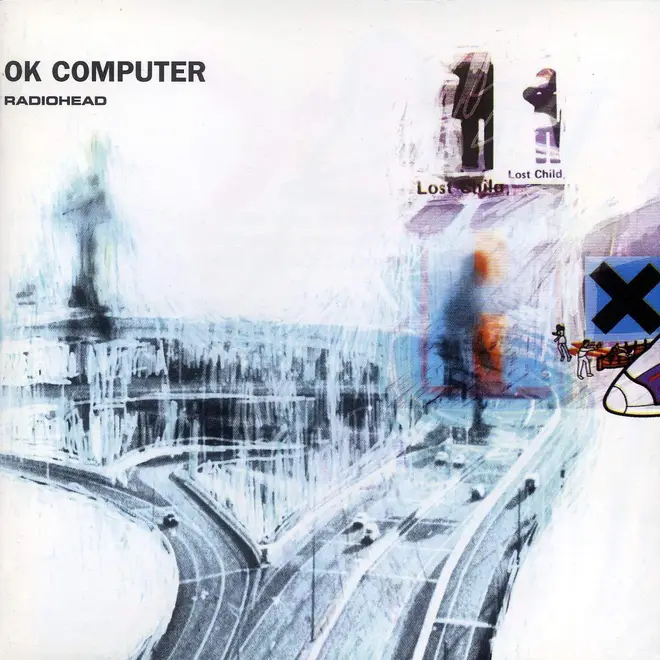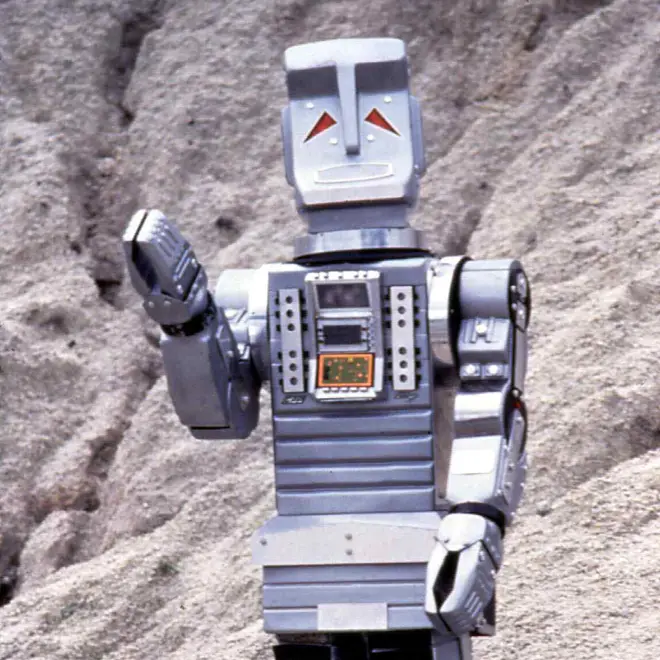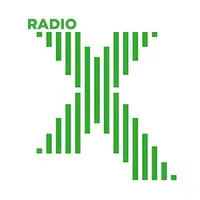What does the title of Radiohead’s OK Computer mean?
16 June 2024, 13:00

The classic album was released on 16th June 1997, but what does that cryptic title actually mean?
Listen to this article
Radiohead's OK Computer was first released in Japan on 21st May, then issued in the UK on 16th June 1997. The third album to come from Thom Yorke and co was both a critical and commercial success and is largely regarded as one of the best British albums of all time.
But, one question that always arises from the album is: where does the phrase “OK Computer” come from… and what’s the meaning behind the phrase?
QUIZ: Do you know the lyrics to Radiohead's Karma Police?
What's the inspiration behind Radiohead's OK Computer album title?
One of the most-quoted stories has Thom Yorke relating a tale of the band visiting a record shop in Japan. “This one kid shouted at the top of his voice, 'OK COMPUTER!' really, really loud,” said Yorke. “Then he had 500 people chant it all at once. I got it on tape. It sounds amazing. It's actually a really resigned, terrific phrase.”

However, the real answer might be a little closer to home. As the Bends tour wound its way around the world in 1996, the band’s listening material on the bus included a copy of the original radio series of The Hitchhiker’s Guide To The Galaxy.
Originally broadcast in 1978 on BBC Radio 4, the sci-fi comedy was written by Douglas Adams and includes a moment when the two-headed, absconding Galactic President Zaphod Beeblebrox gets into a sticky situation as guided missiles head for his spaceship the Heart Of Gold.
Eddie, the talkative shipboard computer, claims that no evasive action can outrun the missiles, so Zaphod demands that he is given control of the ship so he can perform some nifty manoeuvres… despite not having a clue how to pilot the craft.
He yells at Eddie: “OK computer, activate the manual consoles!”
You can see the moment from the 1981 TV adaptation of The Hitchhiker’s Guide To The Galaxy here:

Improbability Drive - The Hitchhiker's Guide To The Galaxy - BBC
The comedy series has a dim view of the commercialisation of technology: computers have hyped-up personalities and even the spacecraft’s doors are chatty. Nothing ever seems to work properly… or gets done.
The Hitchhiker’s Guide To The Galaxy and the mistrust of technology also found its way into one of the album’s tracks: the Heart Of Gold’s onboard robot has a “Genuine People Personality”… which unfortunately results in an automaton with clinical depression. His name is Marvin, nicknamed the Paranoid Android. Originally voiced by the brilliant Stephen Moore on radio, he was played by Warwick Davis and voiced by Alan Rickman in the 2005 big-budget film version of the story.

Speaking on the Much Music channel in Canada, shortly before the release of OK Computer, Thom Yorke explained how the phrase had crept into Radiohead’s everyday language.
“It as a kind of a fear-based phrase, really,” he said. “We bought all this stuff and we didn’t really know how to use it. So we’d walk around the studio, saying ‘OK, computer!’, like ‘Go!’ And it wouldn’t do anything.”
“The paranoia I felt at the time was much more related to how people related to each other,” he later explained to Rolling Stone. “But I was using the terminology of technology to express it. Everything I was writing was actually a way of trying to reconnect with other human beings when you’re always in transit. That’s what I had to write about because that’s what was going on, which in itself instilled a kind of loneliness and disconnection.”

Marvin The Paranoid Android - The Hitchhiker's Guide To The Galaxy - BBC














